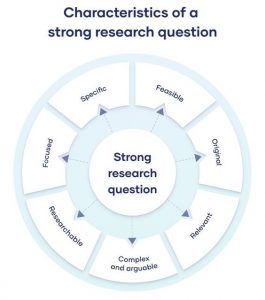Maternity nursing, a field teeming with challenges and triumphs, requires a deep understanding of the complexities of childbirth, postpartum recovery, and the intricate bond between mother and child. This intricate dance of emotions, physical changes, and clinical interventions provides fertile ground for research, and crafting a compelling maternity nursing research paper is key to disseminating knowledge and improving care.
This article serves as a guide, delving into the essential elements that elevate a maternity nursing research paper from a mere collection of data to a captivating narrative that resonates with readers.
What is Maternity Nursing?
Maternity nursing, also known as obstetric nursing, is a specialized area of nursing that focuses on the care of women during pregnancy, labor, delivery, and the postpartum period. It involves providing physical and emotional support to mothers and their babies, ensuring safe and healthy outcomes for both.
Here's a breakdown of the key aspects of maternity nursing:
- Prenatal Care:
- Education: Providing information on healthy pregnancy, nutrition, exercise, and childbirth preparation.
- Monitoring: Assessing maternal health, fetal development, and risk factors through regular checkups and screenings.
- Counseling: Addressing emotional concerns, managing stress, and providing support for lifestyle changes.
- Labor and Delivery:
- Support: Offering emotional and physical support during labor, helping women cope with pain and discomfort.
- Monitoring: Continuously monitoring mother and baby's vital signs, fetal heart rate, and progress of labor.
- Intervention: Administering medication, assisting with procedures, and responding to complications during labor.
- Delivery: Assisting with vaginal and cesarean deliveries, ensuring a safe and healthy birth for both mother and baby.

- Postpartum Care:
- Assessment: Monitoring mother's physical recovery, including bleeding, pain, and breast feeding.
- Education: Providing information on postpartum care, breastfeeding, bonding, and infant care.
- Support: Addressing emotional changes, providing resources for breastfeeding support, and helping mothers adjust to their new role.
- Neonatal Care:
- Assessment: Monitoring baby's vital signs, physical development, and overall well-being.
- Intervention: Providing basic care, including bathing, feeding, and diapering.
- Education: Teaching parents about infant care practices, including feeding, bathing, and safe sleep.
- Specialty Areas:
- High-risk pregnancies: Caring for women with medical conditions that complicate pregnancy.
- Labor and delivery complications: Managing situations like preeclampsia, preterm labor, and birth defects.
- Neonatal intensive care: Caring for premature or critically ill newborns.
Maternity nurses are highly skilled and compassionate professionals who play a vital role in ensuring healthy and positive birth experiences for women and their babies. They work in various settings, including hospitals, birthing centers, and private practices.
Becoming a maternity nurse requires specialized education and training. This typically includes a bachelor's degree in nursing (BSN) and certification in
obstetric nursing. Continuous professional development is essential to stay updated with the latest advancements in the field.
How to Craft a Compelling Maternity Nursing Research Paper
- Defining the Scope: Choosing a Relevant and Impactful Topic
The first step in writing an engaging maternity nursing research paper lies in selecting a relevant and impactful research topic. This requires a deep understanding of current trends, gaps in knowledge, and the practical implications of your research findings.
- Stay Informed: Actively engage with scholarly publications, attend conferences, and connect with experts in your field. This allows you to identify areas where knowledge is lacking or where current practices can be improved.
- Embrace the "Why?": Ask yourself "why" this research matters. Does it address a critical issue in maternity nursing? Will it improve patient outcomes? Will it challenge existing paradigms and contribute to a better understanding of maternal and neonatal health?
- Target Your Audience: Consider the readership of your intended publication. A maternity nursing research paper aimed at a specialized audience may require a deeper dive into technical details than a paper for a broader readership.
- Building the Foundation: Crafting a Compelling Research Question
A well-formulated research question is the cornerstone of a successful maternity nursing research paper. It acts as a guiding light, directing your research and shaping your findings.

- Specificity is Key: Avoid vague or overly broad questions. Instead, focus on a specific aspect of maternity nursing, such as the impact of a particular intervention, the effectiveness of a specific care model, or the influence of cultural factors on maternal health.
- Measurable and Testable: Ensure your research question can be investigated and answered using quantifiable data. This allows for objective analysis and strengthens the credibility of your findings.
- Relevance to Practice: Consider the practical implications of your research question. Will the answer contribute to improved patient care, inform policy changes, or advance the field of maternity nursing?
III. Weaving the Narrative: Constructing a Clear and Concise Structure
A well-structured maternity nursing research paper allows readers to easily follow your argument and grasp the key findings. The following structure provides a roadmap for organizing your thoughts:
- Introduction: Briefly introduce the topic and its significance, highlighting the existing knowledge gaps and the importance of your research. Clearly state your research question and the objectives of your study.
- Literature Review: Synthesize existing research relevant to your topic, highlighting key findings and identifying contradictions or areas of uncertainty. Analyze the gaps in the literature that your research aims to address.
- Methodology: Provide a clear and detailed description of your research methodology, including the study design, sampling techniques, data collection methods, and data analysis procedures. Ensure transparency and rigor in your methods.
- Results: Present your findings in a clear, concise, and objective manner, using tables, figures, and charts when appropriate. Avoid unnecessary technical jargon and focus on interpreting the meaning of your findings.
- Discussion: Connect your results to existing literature, highlighting the significance of your findings and their implications for practice, policy, and future research. Discuss any limitations of your study and propose recommendations for future research.
- Conclusion: Summarize your key findings and reemphasize the significance of your research. Reinforce the impact of your study on the field of maternity nursing.
- Engaging the Reader: Using Language and Style Effectively
A strong maternity nursing research paper not only presents factual information but also engages readers through clear, concise, and compelling language.
- Focus on Clarity and Conciseness: Avoid jargon and overly complex sentence structures. Use simple, direct language that allows for easy understanding.
- Utilize a Conversational Tone: While maintaining academic rigor, strive for a conversational tone that makes your writing more accessible and engaging.
- Engage with the "Human Element": Connect your research to real-life situations and experiences, drawing on anecdotes and case studies to illustrate the impact of your findings.
- Visual Storytelling: Incorporate visuals such as tables, graphs, and images to enhance understanding and make your maternity nursing research paper more visually appealing.
- Honing the Craft: Tips for Effective Writing
- Start Early: Begin writing well before the deadline to allow ample time for revisions and feedback.
- Seek Feedback: Share your maternity nursing research paper with colleagues, mentors, and peers for constructive criticism and suggestions for improvement.
- Refine and Refine: Edit and revise your paper multiple times, ensuring clarity, coherence, and grammatical accuracy.
- Proofread Carefully: Thoroughly proofread your final paper for any typos, grammatical errors, and inconsistencies.
- Submitting Your Work: Navigating the Publishing Process
- Target the Right Journal: Select a journal that aligns with the scope and audience of your maternity nursing research paper.
- Follow Submission Guidelines: Carefully read and adhere to the specific formatting and submission guidelines of the chosen journal.
- Respond to Reviewer Feedback: Be receptive to reviewer comments and address them thoughtfully and professionally.
- Persistence Pays Off: Be patient and persistent, understanding that the publishing process can take time.
VII. Making a Difference: Disseminating Your Research
A maternity nursing research paper is not simply a finished product; it's a catalyst for change. Effectively disseminating your research ensures it reaches the right audience and has a real impact on practice and policy.
- Present at Conferences: Share your findings with the broader maternity nursing community through presentations and posters at conferences.
- Publish in Journals: Get your research published in peer-reviewed journals to reach a wider audience and contribute to the body of knowledge.
- Engage with Practitioners: Share your research with practicing nurses and healthcare professionals to translate your findings into real-world applications.
- Utilize Social Media: Use social media platforms to disseminate your research findings and engage in dialogue with other researchers and practitioners.
 VIII. The Power of a Well-Crafted Maternity Nursing Research Paper
VIII. The Power of a Well-Crafted Maternity Nursing Research Paper
A well-written maternity nursing research paper is more than just a collection of facts and figures. It's a powerful tool that can:
- Advance the field of maternity nursing: By identifying knowledge gaps, testing new interventions, and contributing to the body of evidence, maternity nursing research papers drive progress and improve patient care.
- Empower nurses: By providing evidence-based insights, these papers equip nurses with the knowledge and tools to make informed decisions and provide high-quality care.
- Shape policy and practice: Findings from maternity nursing research papers can inform policy decisions and shape clinical guidelines, leading to improved maternal and neonatal health outcomes.
- Enhance patient safety and well-being: By illuminating potential risks and identifying effective strategies, maternity nursing research papers contribute to safer and more positive birth experiences for mothers and newborns.
Beyond the Page: The Role of Research Ethics
Ethical considerations are paramount in maternity nursing research. It is imperative to prioritize the safety and well-being of both mothers and their infants, ensuring informed consent and safeguarding privacy. These principles guide research practices and ensure that knowledge acquisition aligns with ethical considerations.
Writing an engaging maternity nursing research paper is a journey that demands passion, dedication, and a commitment to improving maternal and neonatal health. By embracing the elements discussed above, you can craft a compelling narrative that not only informs but also inspires change, ultimately leading to a brighter future for mothers and their children.
The Best Maternity Nursing Research Paper Help
At
Academia Scholars, we offer professional maternity nursing research paper help for undergraduate, Degree, Master’s and Doctoral levels. Our service covers topic suggestion, research paper writing, editing and proof reading, plagiarism check and removal. We can also help you with writing original
nursing essays, case studies and
dissertations.


 VIII. The Power of a Well-Crafted Maternity Nursing Research Paper
A well-written maternity nursing research paper is more than just a collection of facts and figures. It's a powerful tool that can:
VIII. The Power of a Well-Crafted Maternity Nursing Research Paper
A well-written maternity nursing research paper is more than just a collection of facts and figures. It's a powerful tool that can: